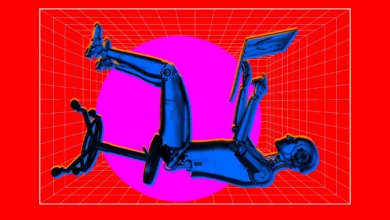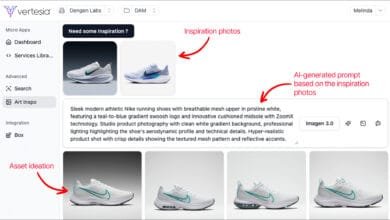S3: Train Search Agents Faster with Less Data

▼ Summary
– Researchers at UIUC developed s3, an open-source framework to improve retrieval-augmented generation (RAG) systems by simplifying and reducing costs for developers.
– s3 separates the retrieval and generation phases, allowing compatibility with any LLM (e.g., GPT-4, Claude) without requiring fine-tuning, making it practical for enterprises.
– The framework introduces a reward signal called Gain Beyond RAG (GBR), which measures retrieval quality by how much it improves the generator’s accuracy.
– Testing showed s3 outperformed other RAG methods on benchmarks, achieving strong results with minimal training data (2.4k examples vs. 70k+ for competitors).
– s3 demonstrated cross-domain adaptability, performing well on medical QA without domain-specific training, making it useful for specialized enterprise applications.
Building better search agents just got easier with s3, an innovative open-source framework that accelerates retrieval-augmented generation (RAG) development while cutting data requirements. Developed by researchers at the University of Illinois Urbana-Champaign, this solution helps developers create more efficient LLM applications by streamlining retriever model training within RAG architectures.
The backbone of any effective RAG system lies in its retrieval component. The research team outlines three evolutionary phases of retrieval approaches. Early “Classic RAG” systems used static methods with fixed queries, often struggling with complex reasoning tasks. More advanced “Pre-RL-Zero” techniques incorporated LLM participation during inference but lacked trainable optimization. The current “RL-Zero” generation employs reinforcement learning to refine search agents, though existing methods still face limitations like costly LLM fine-tuning and misaligned optimization metrics.
s3 introduces a modular solution that cleanly separates search from generation. The framework trains a specialized search agent that interacts with external knowledge sources without modifying the final answer-generating LLM. This approach maintains compatibility with proprietary or frozen models while improving retrieval quality through a novel reward system called Gain Beyond RAG (GBR). GBR specifically measures how retrieved documents enhance the generator’s accuracy compared to baseline methods.
Practical testing across six question-answering benchmarks demonstrated s3’s advantages. The framework outperformed static retrieval, zero-shot, and end-to-end tuned baselines while requiring dramatically less training data—just 2.4k examples compared to 70k-170k needed by alternatives. This efficiency makes s3 particularly valuable for enterprises with limited annotated datasets or GPU resources.
The system’s cross-domain capabilities add another layer of utility. Remarkably, s3 achieved strong zero-shot performance on medical QA tasks despite training only on general questions, suggesting its learned search strategies transfer better than generation-focused approaches. This adaptability suits specialized business applications where domain-specific training data may be scarce or proprietary.
For organizations implementing AI-powered search, s3 offers tangible benefits: reduced development costs, faster deployment cycles, and the flexibility to work with various LLM providers. The framework’s modular design allows companies to enhance search quality without modifying existing generation infrastructure—a critical advantage for those using closed-source models or facing regulatory constraints on system changes.
Potential applications span multiple industries from healthcare to enterprise knowledge management, particularly in scenarios where precise information retrieval outweighs the need for generative capabilities. As AI systems increasingly handle complex queries across specialized domains, solutions like s3 that optimize search efficiency while minimizing resource demands could reshape how organizations implement retrieval-augmented generation.
(Source: VentureBeat)






